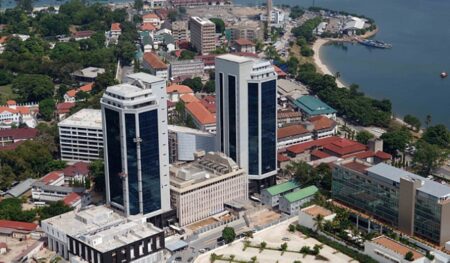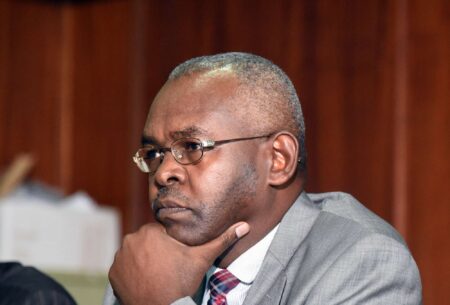- African governments are moving to ease requirements for digital financial services
- Limited digital finance infrastructure funding is still a hurdle
- Women, rural populations benefit most from the digitization of financial services in Africa
African nations are now investing in digitizing their financial systems as the basis to among other things, increase financial inclusion.
By digitizing financial systems, the continent will be able to overcome the related costs of physical engagements and that way save more money and increase sector reach especially to rural areas.
“Widespread adoption of digital payments including international and domestic remittances, can be instrumental in reaching the financial inclusion goals of the G20,” notes the World Bank.
Read: Why digitization is important in the insurance industry
In that report titled ‘The opportunities of digitizing payments: How digitization of payments, transfers, and remittances contributes to the G20 goals of broad-based economic growth, financial inclusion, and women’s economic empowerment,’ the World Bank explains that digital platforms offer the opportunity to rapidly scale up access to financial services using mobile phones, retail point of sales, and other access points when supported by an appropriate financial consumer protection framework.
In this regard, countries in Africa stand to gain tremendously especially given the large uptake of mobile phones and growing use of the internet. The spread of mobile phones allows for financial inclusion, especially for communities in rural areas where services of banks and other financial institutions are rare.
Through the digitization of financial services like mobile money services, then financial inclusion is increased. Further, still, digital payments serve to promote women’s economic empowerment because it facilitates asset accumulation and increases women’s economic participation.
Further still, access to digital payments provides a significant amount of both confidentiality and convenience, particularly for women.

GSDRC also points out that opening an account on a digital platform that provides access to financial services is actually ‘…an important first step for introduction to the formal economy for an entrepreneur and can lead to the formalization of her small business.’
“Not only do digital remittances lower costs for the senders and recipients of payments, but they also increase access to the banking system, the privacy and transparency that they afford, and security throughout the system. This has the added advantage of giving a significant boost to women’s economic empowerment,” attests GSDRC.
There is a need for African countries to increase the use of digital remittances and the related financial inclusion options it creates, as mentioned above. Through digitizing of financial services, Africa can increase productivity and formalize many small businesses and especially those in agricultural activities.
However, there is a need for very dedicated and prolific involvement of government authorities because of the high cost related to the set up of digital payments particularly owing to the related physical infrastructure.
“This is not just for mobile telecommunications, but also access the needed cash-out points,” points out the GSDRC report.
The report also points to the related human element, for example, “…new users of digital payments need to be educated about how to use them, the other banking options they open up, and how the overall system works, as well as why it should be trusted,” reads the report in part.
There is a need for governments to empower the private sector through favourable policies that allow or ease investment for setting up of the infrastructure. By doing so, governments facilitate the spread of digital payments within their countries and increase financial inclusion.
“Governments can lead by example, both by using digital payments themselves and by creating a regulatory environment conducive to digital innovation,” the report suggests.
On the part of the private sector lies the need for increased innovation, taking the opportunity to invest in infrastructure. This is a two-way street that requires public-private partnerships to create and maintain convenient, reliable and secure networks that at the end of the day increase financial inclusion.
With increased financial inclusion, Africa takes a step closer to ending poverty, increases national internal revenue sources and effectively funds its own socio-economic development.
It is also vital for organizations like the GSDRC, which is a partnership of research institutes, think-tanks and consultancy organizations to be facilitated because they provide the needed research and consultancy services information that influence policymaking.
Read: Tanzania shines for financial inclusion in Africa
Expanding Digital Finances: Case Study West Africa
The African Development Bank (AfDB) has inked a massive grant agreement to the tune of $400,000 to modernize the regional financial market infrastructure in West Africa.
The funding is to be extended via the West African Monetary Union (WAMU) and among other things is meant to fund the creation of a digital platform to automate securities issuance for the regional financial market.
In a press release, the AfDB said the funding will also help reduce the holding period preceding subscription allocations and registration on the said digital platform.
The grant is “…is expected to facilitate access to securities issuance information and data for market stakeholders and allow them to have reliable real-time information on securities issuance,” the Bank said.
The communiqué explained that the grant is to be sourced from the Capital Markets Development Trust Fund which is a multi-donor fund. This fund, which operates under the Bank is financed by the Ministry of Finance of Luxembourg and the Ministry of Foreign Trade and Cooperation of the Netherlands.
“This project is been implemented at an opportune time, when most of our regional member countries, including WAMU member countries, are seeking to stimulate their post-Covid-19 recovery,” details Director-General for the West Africa Region of the African Development Bank Group, Marie-Laure Akin-Olugbade.
“The support of the African Development Bank through this grant will help mobilize additional resources and support the efforts of the economies of the West African Monetary Union,” she said.
This is a major technological development that will help accelerate the development of the regional financial market. By digitizing the operations, the funding will facilitate access for investors, especially retail investors, to our products through an automated, transparent and secure subscription mechanism.
Read: How digitization is benefiting Kenya’s economy











